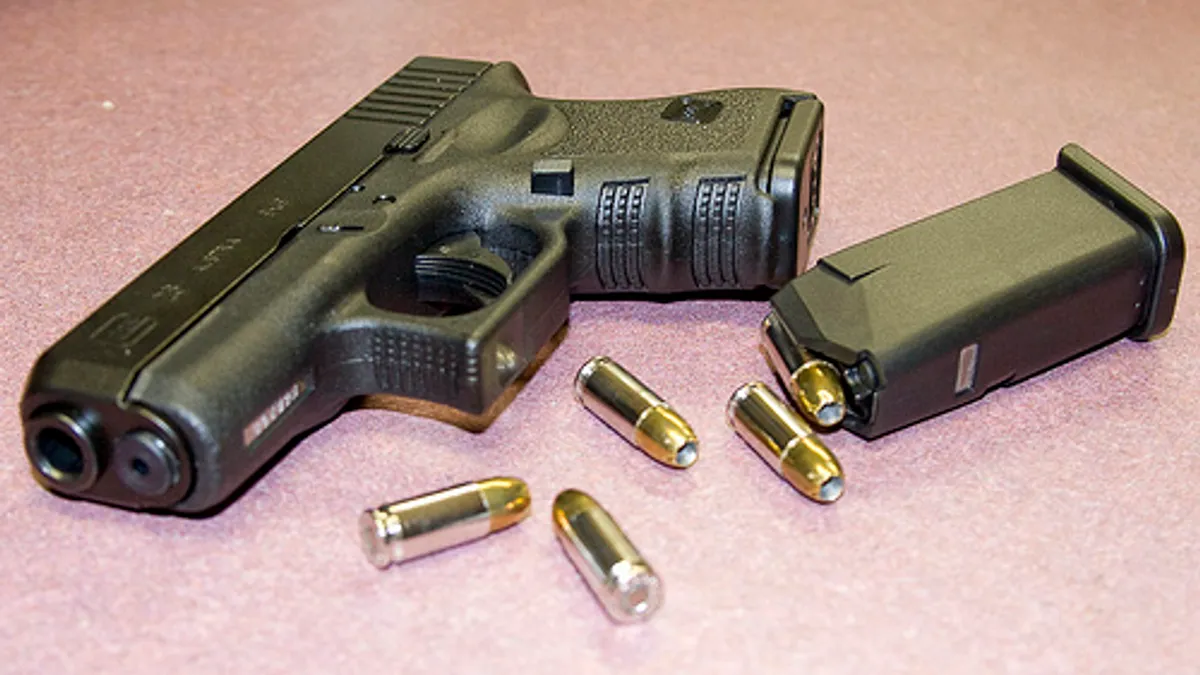Dive Brief:
- As state and school leaders debate whether teachers should be armed, a recent analysis of gun violence data from the Giffords Law Center to Prevent Gun Violence says there have been more than 60 publicly-reported incidents of guns – many of which were carried by school employees who had permission to do so – that were mishandled at schools since 2014.
- Supporters of proposals to arm teachers include the Federal Commission on School Safety, which was chaired by U.S. Secretary of Education Betsy DeVos and convened by President Donald Trump, Education Week notes. These and other supporters argue armed teachers would cut down response times in active-shooter situations and may act as a deterrent to someone planning an attack on a school.
- Multiple states are considering related proposals: A Tennessee bill, for example, would allow teachers with concealed-carry permits to carry guns on campus, while Florida's proposed guardian program expansion would let trained teachers carry guns in schools, Education Week notes. However, after DeVos was reportedly considering using federal funds to arm teachers, some federal Democratic lawmakers have moved to block districts from using the funds for this purpose.
Dive Insight:
In the wake of a spate of school shootings in recent years, school leaders, lawmaker and law enforcement officials are among those who seem to be more attuned to school safety issues. More than a year after the Parkland, Florida, shooting that killed 17 people, state and school policies have since been put in place to prevent a similar tragedy from happening again. Increasing school security through security cameras, fewer entrances and the increased presence of law enforcement officers on campus are among what's been implemented and suggested. However, school safety also depends on the timely and coordinated response of law enforcement agencies in an active shooter or other school violence scenario.
Some say training and arming carefully screened teachers cuts down this wait time and equips them to act as first responders, and more states are considering this idea. Earlier this year, a 15-member commission investigating last year’s shooting at the Marjory Stoneman Douglas High School recommended that more teachers in Florida be armed, and its state legislature is considering expanding its guardian program to arm teachers. Additionally, North Carolina is considering a bill that would give teachers a 5% pay raise to undergo police training.
However, there are concerns about giving teachers weapons. Critics are concerned that arming teachers would only add another weapon to the mix and could confuse law enforcement officers when they arrive on campus. They also point out that even seasoned officers with high levels of training can have trouble shooting accurately in high-pressure situations and that a lesser-trained teacher could do more harm than good with a weapon. Added to this are concerns that deep-seated racial biases could affect a teacher’s judgment in a tense situation.
The debate over arming teachers will likely continue as schools confront how to handle nightmare scenarios should they occur. However, a less controversial solution to better school security, some argue, is the need for increased resources such as counselors and mental health professionals to help address issues before they reach a crisis point. Many advocates are united on this issue and increasing mental health services has added benefit of helping to address many other issues that affect students, including bullying, suicides and addiction.














